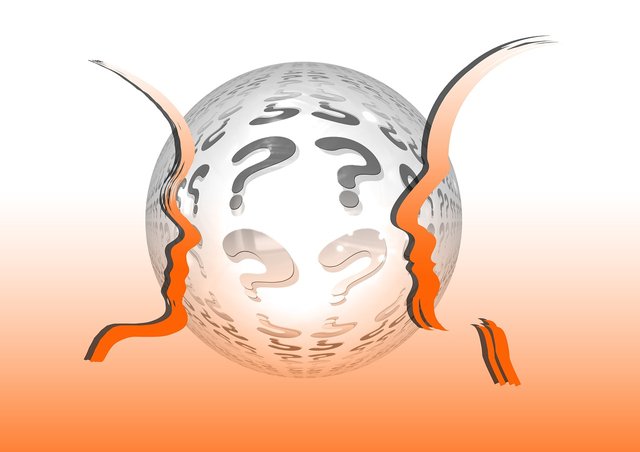Empathy workshop, part 3: Getting better at understanding people you dislike or disagree with
In the first part of this series, I talked about why the world needs more empathy. In the second part, I explained ways to increase or recharge your empathy. Now it's time to put your empathy into action.
Maybe you find it pretty easy to empathize with people you like and agree with. But what about the people you don’t? After all, if everyone liked and agreed with each other, the world wouldn’t need healing.

Buckle your seat belt, because the ride’s about to get a bit bumpier. I’m going to walk you through a really great empathy-building exercise. But you will have to get creative.
I want you to go people watching. Or rather eavesdropping. Find a place where there are lots of people hanging out, having conversations. Find a good spot, sit down, pretend to be occupied with reading a book or listening to your iPod or whatever.
Now listen to the people around you. Wait until you find someone that rubs you the wrong way. Their opinions are offensive to you. You just can’t understand the way this person thinks.
That’s your person. Now comes the hard part. I want you to humanize this person. Invent a story for them. Give them a reason, an understandable motivation for holding such opinions.
I never said it would be easy!
If you are having trouble, then think about a book or tv show or movie in which a character who was initially unlikable was humanized by a backstory. Maybe it was a difficult childhood or specific trauma or just a very significant event that shaped their worldview.
It's happened to me many times that I started to feel for a character that I previously disliked when I saw (or read) the events that shaped their beliefs and motivations. I didn't suddenly agree with their actions, but I was able to feel empathy for them and understand why they acted or thought as they did.
Are you seeing the point of this exercise? It’s about putting yourself into the shoes of someone whom you can’t imagine ever agreeing with and trying to understand them.
Of course, the real story is not going to be what you’ve imagined. Maybe the real story is much harder to empathize with. Or maybe it affects you even more. It doesn’t matter.
You’re developing a skill, a very useful and important one.
You can use this all the time. When someone does something that bothers you, the first thing you can do is try to come up with valid reasons to explain their behavior. Reasons that you can understand and forgive. It’s rare that you will manage to come up with the real reason, but that doesn’t matter.
So if a friend shows up an hour late for a meeting, don’t be angry. Assume they got stuck in a traffic jam or their car broke down or an important and unexpected responsibility came up or their child suddenly threw up all over the floor as they were about to leave the house.
Why would you assume the meeting isn’t important to them? They are your friend. Expect the best from people.That ‘s called giving someone the benefit of the doubt. And you will be glad the next time someone does it for you.
MOTIVATION MATTERS
One of the amazing things about great fiction writers is their ability to humanize even the most despicable of characters and make us empathize with them. One of the ways that writers do this is by crafting the right motivations. The reasons that people do things are important.
Have you ever been really angry at someone because they did something just, just… just awful! And grrrrr, how could they!
But then you calmed down enough to let them explain and you found out that actually they were trying to do something really nice and it just went wrong or you misunderstood somehow. Well, after that you couldn’t be angry any more, right? Because you understood their motivation. You knew their story.
Let’s make up a rather extreme example just for illustrative purposes.
You are driving your pickup truck down the street, minding your own business, humming happily to yourself, when suddenly a man jumps into the road directly in front of you. You slam on your brakes and swerve off the road, nearly crashing your truck into a lamppost. What the hell!?! This idiot wasn’t paying attention and almost got you and themselves killed!!
You’re about to give this man a real piece of your mind…when you see the small child playing in the road 10 meters behind him. Boom, anger gone! This man is a hero. You would have run the child over and killed it!
Are you beginning to get the picture? Like I said, that is an extreme example, but it’s clear that the reasons why people do things matter.
In the next part we will take it to the next level and see how to use empathy to improve your interactions with people you normally avoid or don't get along with in day-to-day life.
This is a modified and expanded excerpt from an original article (written by me) that first appeared on my blog at http://www.shawndove.com/blog/.
Empathy workshop, part 1: Why the world needs more empathy
Empathy workshop, part 2: How to increase your empathy
Empathy workshop, part 4: Putting your empathy into action
Other articles by me:
Intolerance is fear of the unknown
The old man on the bench (a flash fiction story)
@originalworks
The @OriginalWorks bot has determined this post by @shawndove to be original material and upvoted it!
To call @OriginalWorks, simply reply to any post with @originalworks or !originalworks in your message!